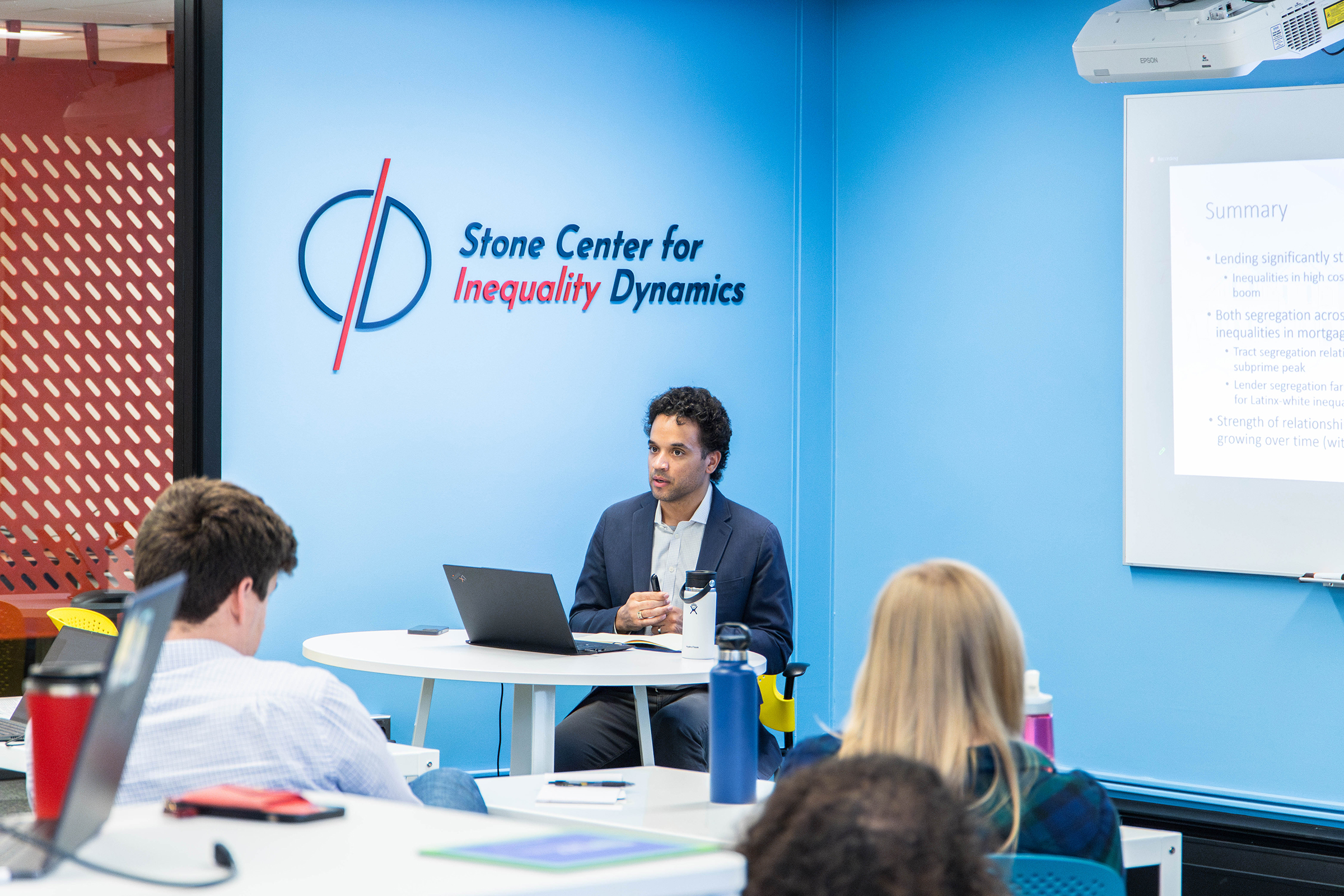CID Visiting Fellowship
The Stone Center for Inequality Dynamics (CID) at the University of Michigan will reopen applications for a Visiting Fellow for the 2026-27 academic year in fall 2025.
CID aims to produce cutting-edge research on social inequality, especially wealth inequality; train the next generation of inequality scholars; and build data infrastructure and increase data accessibility. We pursue these aims as an interdisciplinary group of social scientists working in a collaborative space. Our team includes experts on topics such as wealth and income inequality, economic mobility, economic history, economic sociology, and housing. Together, we examine how between-group inequalities are shaped by geographic, political, and institutional contexts. The CID Visiting Fellowship provides an early-career, tenure-track social scientist with dedicated time to pursue their research in a community defined by a culture of engagement and collaboration.
Applications Closed
Applications will reopen Fall 2025
Given the mission of the center, we especially encourage individuals from any groups racialized as non-white, and welcome applicants from many educational, cultural, geographical, and familial backgrounds to apply. International applicants are welcome to apply. Faculty at the University of Michigan are not eligible to apply.
Eligibility
Applicants must meet all of the following:
- hold a PhD or equivalent terminal degree
- have an academic, tenure-track appointment at their home institution
- have not yet received tenure
International applicants are welcome to apply. Faculty at the University of Michigan at Ann Arbor are not eligible to apply.

Expectations
CID strongly encourages the Fellow to live in the Ann Arbor area during the academic year of their fellowship, so that they may fully engage with the CID community. At the same time, we recognize that this may not be possible for all candidates. Thus, the Fellow may pursue a primarily nonresidential option. Fellows who will be primarily nonresidential are expected to visit CID at least once in the Fall 2025 semester and once in the Winter 2026 semester, for a total of at least 4 weeks during the academic year. CID will work with the Fellow to determine the schedule of visits.
Regardless of whether the Fellow chooses to be residential or nonresidential, they are expected to devote the academic year of their fellowship to research and to participate in the CID community (in-person or virtually). Fellows are expected to give a talk on their research, participate in CID’s monthly early ideas workshops and other center talks and events, and to meet periodically with CID students and faculty throughout the year.
Fellows will be asked to affirm that they have no teaching and service responsibilities at their home institution during the academic year of the fellowship.
Funding and Resources
CID will provide the Fellow salary support of up to 50 percent of their academic year salary, up to a maximum of $80,000 USD in support. If funds from other sources, such as sabbatical support, provide more than 50 percent of the Fellow’s academic year salary, CID will provide less than 50 percent.
Residential Fellows will be provided with an office in CID, a computer and software, and access to the University of Michigan’s campus resources (e.g., libraries and gyms).
CID will cover up to $8,000 in travel expenses for nonresidential Fellows to travel to CID during the academic year. Fellows will be provided with a workspace in CID during their visits.
Fellows will be asked to affirm that they have matching funds (e.g., through sabbatical funds or external funding) that provide the other 50 percent of their salary for the fellowship year.
Selection Criteria
Applications will be reviewed by a multidisciplinary team of CID faculty members. Applications will be evaluated based on the applicant’s scholarly record to date (as appropriate for their career stage), the promise of their research proposal, and the proposal’s fit with CID’s mission and priority research areas.
For the 2025-2026 fellowship year, priority will be given to applicants whose proposals focus on one or more of our current areas of expertise:
- wealth and income inequality,
- economic mobility,
- economic history,
- economic sociology, and
- housing.
Questions?
If you have questions about the application process, CID, or the visiting fellow position, please contact CID Program Manager Melissa Bora (syapinme@umich.edu).